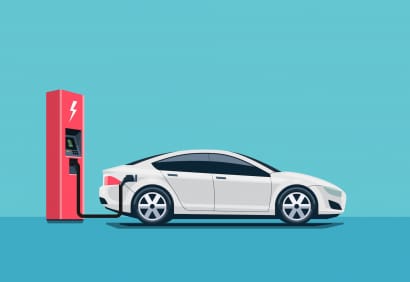Navigating the Electric Highway - 10 Essential Factors to Consider When Choosing Your Electric Vehicle.
As the automotive industry shifts towards sustainable solutions, electric vehicles (EVs) are becoming increasingly popular choices for environmentally conscious consumers.


As the automotive industry shifts towards sustainable solutions, electric vehicles (EVs) are becoming increasingly popular choices for environmentally conscious consumers.
However, purchasing an EV involves more than just selecting a car; it requires careful consideration of various factors to ensure the best fit for your lifestyle and needs.
Read: How to choose and buy an electric car.
Here are 10 key considerations to keep in mind when buying an electric vehicle:
- Range Requirements: Assess your daily driving habits and determine the range needed for your typical journeys. Consider factors such as commuting distance, weekend travel, and potential road trips to ensure that the EV's range meets your needs without causing range anxiety.
- Charging Infrastructure: Investigate the availability of charging infrastructure in your area, including public charging stations and home charging options. Access to convenient and reliable charging facilities can significantly impact your EV ownership experience.
- Charging Speed: Understand the different charging speeds available for EVs, ranging from standard AC charging to fast DC charging. Consider your charging needs and preferences, balancing charging speed with cost and convenience.
- Home Charging Setup: Evaluate your home's electrical infrastructure and determine the feasibility of installing a home charging station. Factor in the cost of installation, charging equipment, and potential incentives or rebates available for home charging solutions.
- Vehicle Types: Explore the various types of electric vehicles available, including battery electric vehicles (BEVs) and plug-in hybrid electric vehicles (PHEVs). Consider your driving patterns, budget, and environmental priorities when choosing between pure electric and hybrid models.
- Performance and Features: Assess the performance characteristics and features offered by different EV models, such as acceleration, handling, safety features, and infotainment options. Test drive multiple vehicles to experience their performance firsthand and determine which best suits your preferences.
- Total Cost of Ownership: Consider the total cost of ownership over the vehicle's lifespan, including purchase price, maintenance costs, fuel savings, and potential incentives or tax credits. Calculate long-term savings compared to traditional internal combustion engine vehicles to gauge the financial benefits of owning an EV.
- Resale Value: Research the resale value and depreciation rates of EVs compared to conventional vehicles. Factors such as battery degradation, technological advancements, and market demand can influence the resale value of electric vehicles over time.
- Battery Warranty and Degradation: Review the warranty coverage for the EV's battery pack, including terms and conditions related to battery degradation. Understand how manufacturers handle battery replacements or repairs and inquire about any available warranty extensions or maintenance plans.
- Environmental Impact: Consider the environmental benefits of driving an electric vehicle, such as reduced greenhouse gas emissions and air pollution. Evaluate the lifecycle emissions associated with manufacturing, charging, and disposing of EVs compared to conventional vehicles to make an informed decision.
Related: I'll Help You Choose An EV
By carefully considering these factors, you can confidently navigate the process of buying an electric vehicle and choose the right model to suit your lifestyle, preferences, and values. Embracing electric mobility not only contributes to a cleaner and more sustainable future but also offers an exciting and rewarding driving experience.




